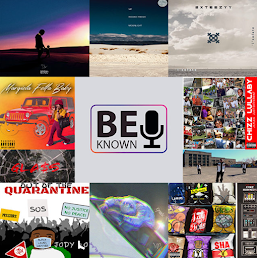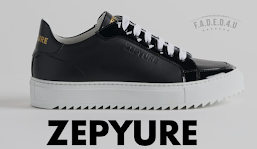Mickey Drexler: "I am so jealous of Louis Vuitton"
Mickey
Drexler, chairman & CEO of J. Crew, spoke with Bloomberg Television
anchor Stephanie Ruhle from the Robin Hood Investors Conference in New
York yesterday about
the current state of retail.
When
asked about retailers like Louis Vuitton who never need to go on sale,
Drexler said, "I am so jealous of Louis Vuitton, okay? And that's a 100,
200-year-old brand
that has had high integrity for a couple of hundred years. You might
add Chanel into that as the only perhaps other one out there and a few
others."
Drexler said J.Crew thought jumping into the athletic trend in apparel but decided against it: "Where we thought about being in, was the active professional kind of business, the yoga or the Under Armour kind of business, but we're not getting in because we don't have the expertise to do that…We're pretty satisfied with the breadth of our products. And now it's a matter of the correct expansion, correct design involvement, and quality."
Drexler said J.Crew thought jumping into the athletic trend in apparel but decided against it: "Where we thought about being in, was the active professional kind of business, the yoga or the Under Armour kind of business, but we're not getting in because we don't have the expertise to do that…We're pretty satisfied with the breadth of our products. And now it's a matter of the correct expansion, correct design involvement, and quality."
CREDIT: BLOOMBERG TELEVISION
STEPHANIE
RUHLE, BLOOMBERG: Mickey, you've got to tell us. What does retail feel
like right now? You did a store visit this morning. What's the vibe?
MICKEY
DREXLER, CHAIRMAN AND CEO, J. CREW: Well I think the vibe is it's
challenging, a little difficult. Get me the best deal. And you got to be
more creative and you
got to be more strategic and you got to just deliver more than your
competitors deliver.
RUHLE:
In terms of creative, is it just about offering sales? I drove down
Fifth Avenue. Gap's offering 75 percent off. It's hard not to go in.
DREXLER:
Well it depends if you like the goods or not. We're not in the customer
who is looking for a deal business. And yes it's challenging as every
retailer today is
reminding everyone about the deals. That's not our business, but it is -
it does create a certain environment.
RUHLE:
How can you afford not to be in that business? When I look at brands
like Ralph Lauren, Michael Kors, Coach, I feel like I buy more at an
outlet mall from them
than I do in their retail stores.
DREXLER:
Well it's - look, this is a long-term business and job for me. We - we
move forward as we see the market demands. We have a very successful
factory value business.
And if - if retailers want to create by only doing price and cheap,
long term will tell the story. There's - how many retailers are not
around over the last 20 years? I think at last count at least 50 or 60
that you've heard of. It's about product, it's about
quality, and it's about connecting with a customer. Yes, it's
challenging right now.
RUHLE:
Then is it a risk? When we look at other companies like The Gap, like
Target, like JCPenney bring in CEOs that are not industry insiders, at
the end of the day
you're a man who truly knows the product. Does it surprise you other
companies are going in a different direction?
DREXLER: Well it's - I think retail is an art and a science.
RUHLE: How?
DREXLER:
You better have both. You better have creative or else if you don't
differentiate your product, move forward, design it well, or have
something that is not available
and you're just building on price, you're going to eventually lose
because someone will sell it for cheaper. I can't comment on what they
do. The boards of directors might have a perspective. But to me it's all
about product and it's about execution. It's
about sourcing. It's about customer service. But isn't the first thing a
customer buys is the goods?
RUHLE:
Then is the cheap way to do it lock in these collaborations? Because
from Kohl's to an H&M to a Target, it's all about getting this
high-end designer to sell a
cheap product.
DREXLER:
Well you'd have to ask the designer what the deal is and what the
economics are. I'm not sure I understand that game, and I'm not sure
it's long term. But then
again, it's just my personal opinion.
RUHLE:
Why does J. Crew need to do collaborations? Why does J. Crew need to
sell me a Barbour jacket when you could sell me your own jacket and I'd
buy it because it's
J. Crew?
DREXLER:
No. There's - collaborations - first of all, it depends on what a
collaboration is. So we have fun with a lot of our designers. People -
well Barbour is, for
example, a great brand, and you can't do a Barbour jacket. We don't
sell a lot of Barbour, but we go after what our customers will like and
what we think they will like, which enhances our own assortments. And
there are things that a brand will do authentically
much better than we could ever do, and particularly in men's clothes.
RUHLE:
What does your customer want? Is it luxury? In the last few years with
J. Crew Collection, it's put you on another level in terms of editorial
and style and desire.
DREXLER:
Well first of all I want to put that into perspective. Collection is
about this big in the company. We - we want to just have high-quality
products with good
taste and good value. And I think if you walk into our stores today,
you'll find that. On the other hand, the reality of the world is sales,
sales, sales. Every store is screaming it from the better stores to the
non-better worse. But that's what - that's
what we do.
RUHLE:
Then do you look at a Louis Vuitton, who never goes on sale, and say
that's how to do it? Deliver the product and you choose the price.
DREXLER:
I am so jealous of Louis Vuitton, okay? And that's a 100, 200-year-old
brand that has had high integrity for a couple of hundred years. You
might add Chanel into
that as the only perhaps other one out there and a few others.
RUHLE: You know who else loves Louis Vuitton? Asia. How's your Asian expansion going?
DREXLER:
Well Asia might not be as in live as much from what I hear. We have two
stores in Hong Kong and so far, so good. We're very pleased. And we
have - Lane Crawford
also sells our goods. But it's small. We're tiny. It's early days. And
it takes - building a business is a forever thing. So time will tell,
but we're so far happy.
RUHLE: You built your business from a catalog. How important is that catalog business today?
DREXLER: The actual business from the catalog is minimum.
RUHLE: Really?
DREXLER:
Yeah. It used to be 100 percent. We started before my time as a catalog
company with a wonderful feeling for the products. The stores opened in
1983, the first
store I think at Seaport. Right now over 80 percent plus and going
higher of the catalog customer goes online. But it's the style guide. It
helps - helps people on how to dress. It also gives a good sense of us
more so than perhaps just our online site.
RUHLE:
And as the retail industry struggles, do you look at bricks and mortar
and say I see less and less people in malls, I don't want to be there?
DREXLER:
No. It's just a balance. Everything in life's a balance. I see less and
less people in malls over the last six months or a year. We don't have
too many stores,
so I'm kind of happy about that. We still are opening stores in malls.
But it is a challenge, and I think the malls need to be more exciting
and more compelling. And every department store is a mall today. Every
mall is a mall, and I think that's an issue.
Where's the differentiating product? It's about the product and why do I
want to shop in a particular store or buy a brand.
RUHLE:
The way consumers are shopping now demanding sales, are they killing
product? Because it's making your margins narrower and narrower.
DREXLER:
Well that might be life. I don't think any consumer can kill a product.
I think the retailer has to have pride and integrity in what they do.
And there are enough
of us left out there, maybe much less who aren't playing the price
game. It's what we do. It is hard, but nothing's ever been easy.
RUHLE: Does this fast fashion, the Zaras of the world, affect you in any way?
DREXLER:
Well they're really good. Zara, who I have a lot of respect for. If you
want clothes that don't last a long time and you want to be of the
moment and you want
a designer look, from what I hear - I don't wear their clothes - you
might go there. It's not going to be in your wardrobe a year from today.
I think they know that. They're really good at what they do. We on the
other hand make clothes that we want people
to keep and never throw out.
RUHLE: But isn't that hard? Because then you can't sell more clothes. I buy my J. Crew jeans and I keep them for 15 years.
DREXLER: Thank you, ma'am. I like that. It's a balance.
RUHLE: What's the one area you're not in that you could see yourself getting into in the next few years?
DREXLER:
Well I'll tell you where we thought about being in, was the active
professional kind of business, the yoga or the Under Armour kind of
business, but we're not
getting in because we don't have the expertise to do that. We're
getting into businesses that we're going to be more aggressive about,
more ambition about, and invest more, but we're pretty satisfied with
the breadth of our products. And now it's a matter
of the correct expansion, correct design involvement, and quality. And I
say quality because that's really important. And luxury today, just
stand on the streets in any city in the world. I'm not sure what's
scarce or not anymore.
RUHLE:
When you walk through the streets in Europe and it's J. Crew-less but
you look at the economic climate there, do you not see yourself being
there for quite some
time?
DREXLER:
Well we're in - we have four stores in the UK. We're opening two stores
in Paris next spring. The - we're tiny. So I think it's always nice to
get into a business
where you're tiny and you have almost no way to go but up. The world's
over-stored. The world's over-garmented. That's a fact of life. But
again, it's long term. And we'll see who makes profits, who get returns
on investment, and time will tell.
RUHLE:
You're a true fashion man, an industry icon, but do you look at last
week the market volatility? Do you pay attention to it at all?
DREXLER:
By the way, I don't call myself a fashion man. I'm a business person
who likes style and quality, and you have to try to read trends and
connect dots. Of course
you look at the markets. If you look at the environment and the feeling
in the world today - now this is personal to me. It's not like you wake
up every day saying this is great. We have Ebola. We have a bad market.
We have all this stuff going on. I think
the mood does in fact affect every consumer, and I don't think it's the
happiest moments in the world. But I'm a little - that's my - the way I
think.
RUHLE:
Does it affect your day to day? Clearly you can't answer if there's a
J. Crew IPO coming, but do these markets when they seem frozen, is it
going to affect what
you could do in the next year?
DREXLER: When you have my job, you have to like really be happy every day.
RUHLE: Are you?
DREXLER:
You have to smile. Well outside I am. Inside, you eat yourself alive
when there's, like, challenges. But I'm - I go to work every day and you
have to be optimistic
and try to do better every day. And anyone who runs any business needs
to continue to do better the next day. So I'm very excited, and if I
weren't I shouldn't do what Ido.
RUHLE: Mickey, it is an honor and a pleasure.
















.png)
.JPG)

![YoungBoy Never Broke Again - Fuck Niggas [Official Music Audio]](https://blogger.googleusercontent.com/img/b/R29vZ2xl/AVvXsEg19b-sw_J51pVkhFnh5kNF9gVUXwJdxvvMOQK6X1xps0aQi6pdAax4NRquiQOan5nrwq5A2zpRFXWVOZFqdVwOD4DqWtDYAdE5rjiWwu7djzaIgpxEXJ6dfCX-s0IolqGMYia41yWPTyYGxjfyJQOyyfA68bzqwTjd-H4p1xBJTRYJgemxXo9Iu2UeJmA/w72-h72-p-k-no-nu/YoungBoy_Never_Broke_Again_Fuck_Niggas_Official_Music_Audio.gif)


0 Comments